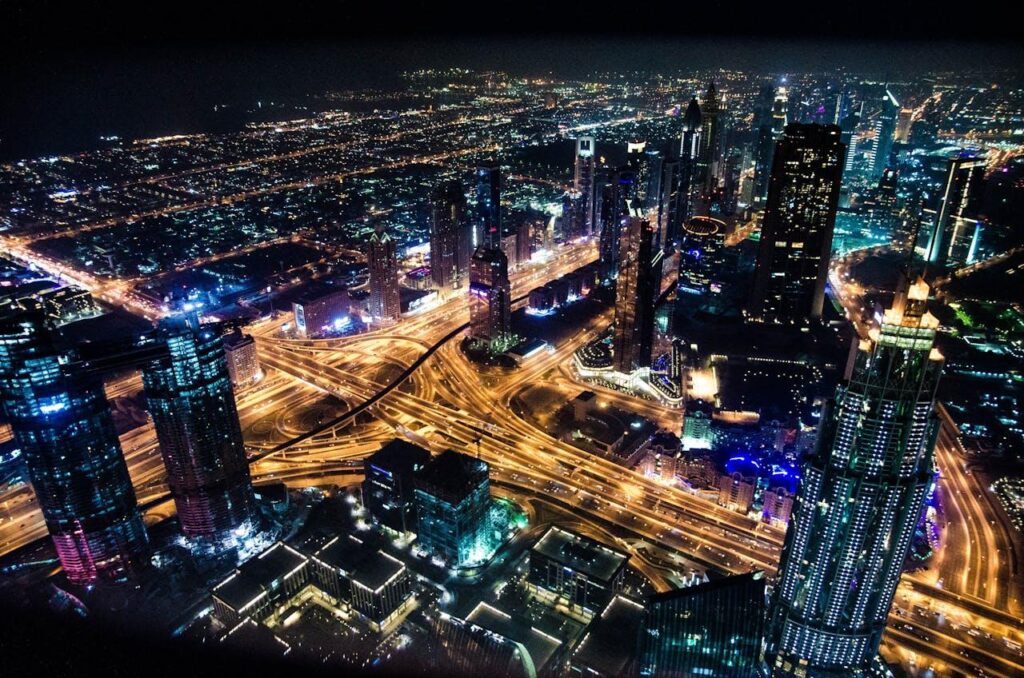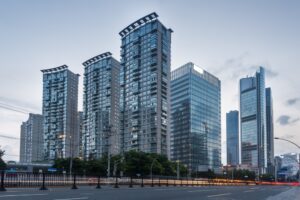

With the rise of connected technologies and the Internet of Things (IoT), cities are being transformed into intelligent hubs where data plays a central role. Smart cities** rely on real-time data analysis to improve citizens’ quality of life, optimize resource management and enhance the sustainability of urban infrastructures.
In this article, we explore how the alliance between IoT and business intelligence is transforming the urban landscape, and what are the challenges for the future
The role of IoT in smart cities
IoT connects urban infrastructures, transport, street lighting, waste management – to optimize their operation. For example, intelligent sensors detect traffic to adjust signaling and reduce congestion, or automated systems monitor buildings’ energy consumption. These advances would not be possible without advanced analysis tools. This is where business intelligence services come in, transforming massive data flows into actionable information. These services enable municipalities and companies to anticipate trends and make strategic decisions based on accurate data.
Enhancing urban infrastructure
IoT technology optimizes urban infrastructure by integrating sensors and automation. These advancements improve traffic management, waste collection, and public services, ensuring efficiency and sustainability. Smart grids balance energy distribution intelligently.
Integration of business intelligence and IoT in urban environments promotes a more proactive approach to urbanization challenges. Thanks to predictive analytics algorithms and interactive dashboards, decision-makers can identify needed improvements and allocate resources more efficiently. This synergy paves the way for smarter, more sustainable and resilient cities, where technology serves as a lever for a better quality of life.
Traffic and transportation management
Connected sensors regulate traffic flow, reducing congestion and pollution. Smart traffic lights adjust dynamically based on real-time conditions. Public transport monitoring systems provide real-time updates, improving commuter experience and efficiency.
Sustainable energy and resource management
Efficient energy and resource management are fundamental to the success of smart cities. By integrating IoT solutions, cities can optimize energy consumption, reduce waste, and ensure sustainable resource utilization. Advanced monitoring and automation enable more precise control, reducing environmental impact and operational costs. The use of smart technology in energy and resource management contributes to a greener and more efficient urban ecosystem.
Smart grid implementation
IoT-powered smart grids enhance energy distribution by adjusting supply based on demand. This reduces energy waste while ensuring stable electricity availability. Consumers benefit from real-time usage data and optimized billing.
Water conservation strategies
Sensors monitor water usage in real time, detecting leaks and inefficiencies. Smart irrigation systems adjust water distribution based on weather conditions. These innovations conserve precious resources and reduce costs.
Enhancing public safety and security
Smart technology plays a crucial role in enhancing urban safety by providing real-time surveillance, predictive analytics, and automated emergency response systems. By utilizing IoT solutions, authorities can prevent crime, respond to emergencies faster, and create safer environments for residents. Implementing smart security measures is essential for fostering a secure and resilient urban infrastructure.
Smart surveillance systems
AI-powered cameras and sensors detect suspicious activities in real time. Authorities receive instant alerts, enabling quick responses. This proactive approach reduces crime and enhances public safety in urban areas.
Disaster response and management
Connected IoT devices monitor environmental conditions, predicting potential disasters. Early warning systems alert residents and officials, improving preparedness. Emergency response coordination is streamlined, ensuring quicker assistance to affected areas.
Improving healthcare and well-being
The integration of IoT in healthcare has revolutionized patient care and well-being. Remote monitoring, real-time diagnostics, and predictive healthcare solutions ensure timely medical interventions. By utilizing smart healthcare systems, cities can reduce hospital strain, improve patient outcomes, and promote a healthier urban population.
Remote health monitoring
Wearable IoT devices track vital signs and detect medical emergencies. Healthcare providers receive real-time patient data, allowing timely interventions. This enhances patient care while reducing hospital overcrowding.
Air quality monitoring
IoT sensors measure pollution levels across cities, providing actionable insights. Governments and residents can access real-time air quality data. This information helps enforce pollution control measures, improving public health.
Challenges and future prospects
Despite the advantages of smart city technologies, challenges such as security risks, data privacy concerns, and implementation costs remain significant. Addressing these issues through robust policies, strategic investments, and technological advancements is critical for the long-term success of smart cities. Future innovations will focus on scalability, efficiency, and enhanced security to ensure continued progress.
The widespread use of IoT raises concerns about data privacy and security. Robust encryption and strict regulations are essential to protect sensitive information. Strengthened cybersecurity ensures safer smart city implementations.
Deploying large-scale IoT solutions requires substantial investments and infrastructure. Cities must plan carefully to integrate these technologies effectively. Long-term strategies ensure seamless expansion and continuous improvement.
Also Read: The Role of AI in Digital Marketing: How It’s Changing Lead Generation
Conclusion – The evolution of urban living
Smart cities powered by IoT enhance urban life through efficiency, sustainability, and security. As technology advances, future developments will refine and expand these systems. The journey towards smarter cities continues to reshape modern urban living.








